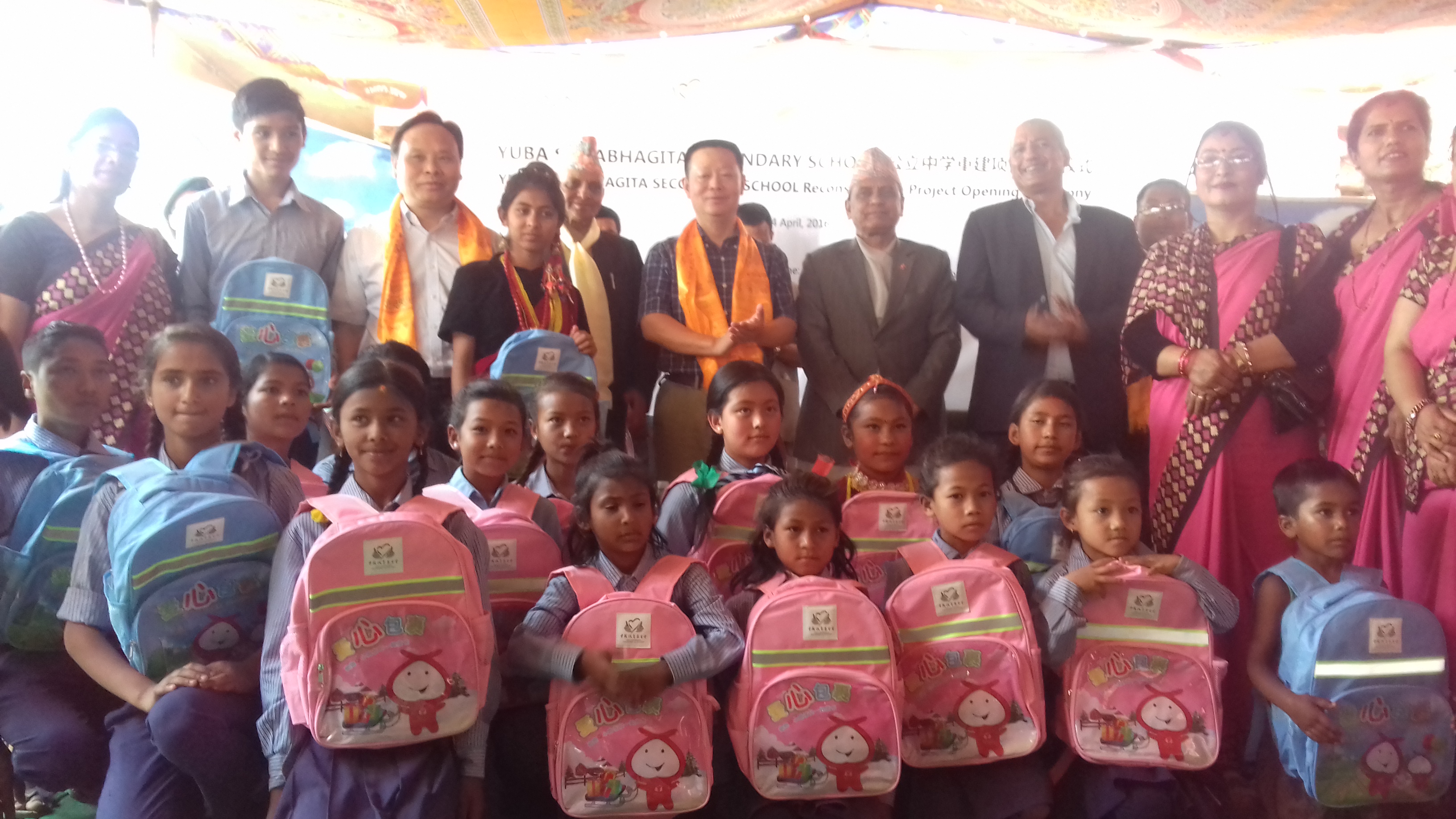In the context of growing calls for the charity sector to move in step with the One Belt, One Road initiative, China Development Brief (CDB) recently spoke with Mr.Wang Xingzui (WXU), the Executive Vice President of the China Foundation for Poverty Alleviation (CFPA) on why and how Chinese NGOs are heading abroad.
CDB: In recent years, more and more Chinese NGOs and foundations have become active abroad. Do you think this trend will intensify?
WXZ: As the breadth and depth of China’s exchanges with the world deepen, more and more Chinese NGOs will go abroad. This trend will definitely intensify.
I believe this will have a positive influence on the development of Chinese NGOs. On the one hand, when Chinese NGOs go abroad to take on international social responsibility, they embody the image of Chinese people as global citizens and of China as a responsible global power in the eyes of the world; on the other, Chinese NGOs abroad go through a process of learning how to integrate into the international community.
We must study and understand international rules and discourse, understand developing countries, and, through our collaboration with the international community, improve our abilities and further our own personal development while helping developing countries.
CDB: Many people might wonder: why do Chinese NGOs want to address problems abroad, when China still has many domestic welfare issues that need attention and social problems waiting for solutions?
WXZ: We believe that in light of China’s continued economic growth, with its GDP now the world’s second largest, as well as the government’s promotion of the “One Belt, One Road” strategy, it is correct for Chinese NGOs to go abroad, since it serves the humanitarian spirit and the interests of national development.
From an economic perspective, the breadth and depth of China’s exchanges with the world are rapidly expanding. As China has increased the speed of its own development, it has always provided whatever aid it could to economically weak developing countries and taken on relevant international responsibilities.
CDB: Has the CFPA encountered any difficulties or barriers when carrying out projects overseas as a result of differences in cultural, political and social systems?
WXZ: When CFPA first began carrying out humanitarian and development aid programs, there were certainly some misunderstandings and delays as a result of not understanding the legal systems and the customs of receiving countries. It was a learning experience.
As our experience of working abroad accumulated, however, we were able to prevent these difficulties and barriers from arising in advance. We continually draw conclusions from the lessons learned during our experience abroad.
CDB: What are the strengths of Chinese NGOs? What contributions do you see that Chinese NGOs’ going out can make to domestic and international civil society?
WXZ: We believe the main strengths of Chinese NGOs going abroad are as follows: first, Chinese NGOs are particularly well suited to supporting the foreign aid programs of the Chinese government, as well as the CSR programs of Chinese companies as a result of their four unique characteristics, namely, their professionalism, neutrality, innovativeness and ability to penetrate communities.
 Second, because China has a similar developmental background to developing countries, Chinese NGOs are better able to empathize with local populations in those countries and design programs tailored to their needs, thereby more effectively supporting local development.
Second, because China has a similar developmental background to developing countries, Chinese NGOs are better able to empathize with local populations in those countries and design programs tailored to their needs, thereby more effectively supporting local development.
Third, China’s internet technology has developed rapidly and Chinese NGOs are among the global leaders when it comes to their technical experience with online fundraising. They can share this experience internationally and promote the development of international civil society.
CDB: Currently, Chinese NGOs are primarily involved in areas such as humanitarian aid, healthcare, and education. Which other areas do you predict will be main focuses for Chinese NGOs abroad?
WXZ: Currently, Chinese NGOs’ overseas activities mainly include: 1) participating in international conferences to showcase, clarify and/or make statements on China’s position on human rights, poverty alleviation, protection of women and children’s rights, climate change, sustainable development, etc.; 2) developing welfare projects in neighboring countries covered by the One Belt and One Road initiative; 3) providing emergency relief during international disasters; 4) engaging in cultural dialogue and exchange with other countries.
In the future, Chinese NGOs need to do more and play a greater role in global governance, welfare projects, and emergency relief. Chinese NGOs can participate more extensively in global governance.
CDB: What are the appropriate roles for Chinese NGOs to play in relation to official foreign aid and private investment?
WXZ: We believe that aid projects carried out purely by governments or companies are easily criticized as having political or commercial motives; unlike NGOs, which are altruistic, neutral, and are often volunteer-based.
Therefore, Chinese NGOs’ participation in foreign aid work can help establish a positive image. Professionalism, neutrality, innovation and deep community ties are four characteristics of NGOs, and they can provide a complimentary role for government foreign aid projects and corporate foreign investment.
Wang Xingzui is the Executive Vice President of the China Foundation for Poverty Alleviation and was selected as a Yale World Fellow in 2013.
This interview has been edited for length.
This article, by Luo Bing, first appeared on the China Development Brief website on 2nd May 2017. You can find the original article here.







Comments (0)